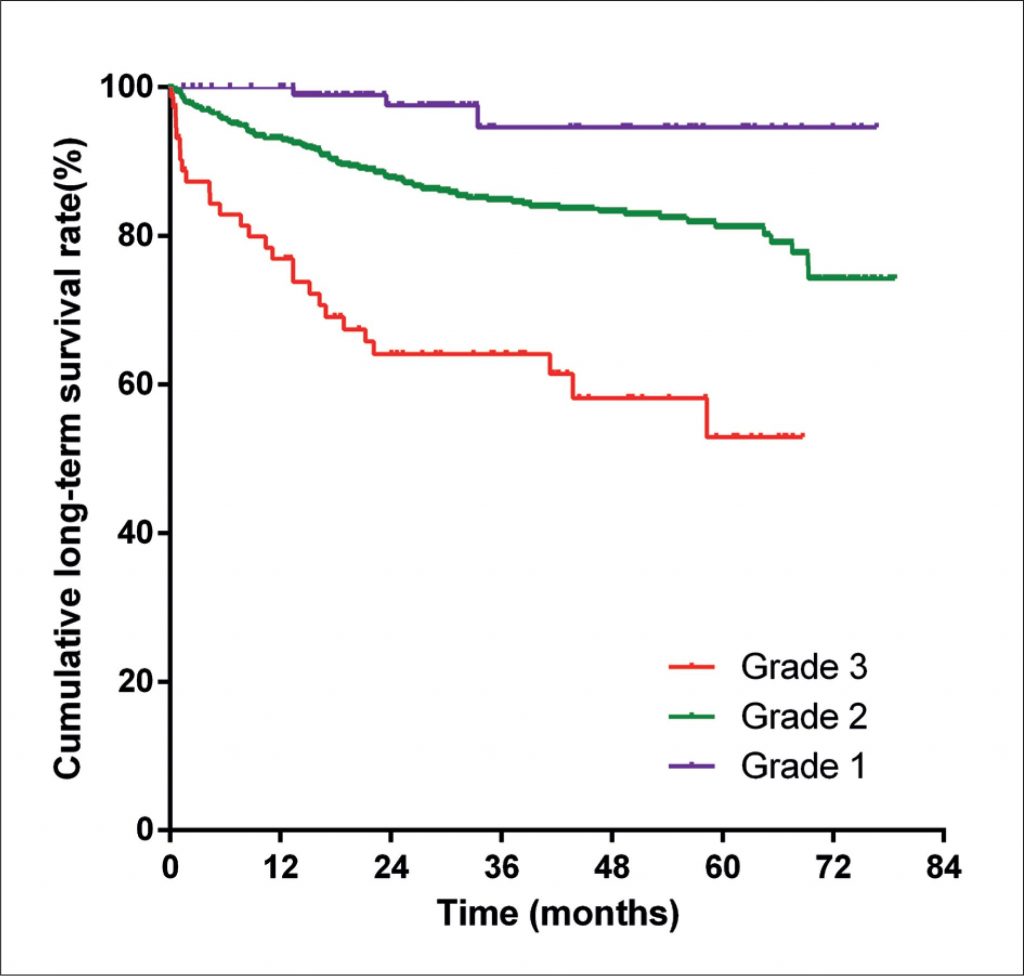Arq. Bras. Cardiol. 2022; 118(6): 1108-1115
Albumin-Bilirubin Score to Predict Outcomes in Patients with Idiopathic Dilated Cardiomyopathy
This Original Article is referred by the Short Editorial "Evaluation of Various Pathophysiological Pathways in the Prognosis of Heart Failure with Reduced Ejection Fraction: Seeing Beyond the Heart".
Abstract
Background:
Liver dysfunction is a postulated variable for poor prognosis in dilated cardiomyopathy (DCM).
Objective:
This study aimed to investigate the prognostic value of the albumin-bilirubin (ALBI) score, a relatively new model for evaluating liver function, in patients with idiopathic DCM.
Methods:
A total of 1025 patients with idiopathic DCM were retrospectively included and divided into three groups based on ALBI scores: grade 1 (≤ −2.60, n = 113), grade 2 (−2.60 to −1.39, n = 835), and grade 3 (> −1.39, n = 77). The association of ALBI score with in-hospital major adverse clinical events (MACEs) and long-term mortality was analyzed. P-value less than 0.05 was considered statistically significant.
Results:
The in-hospital MACEs rate was significantly higher in the grade 3 patients (2.7% versus 7.1% versus 24.7%, p < 0.001). Multivariate analysis showed that ALBI score was an independent predictor for in-hospital MACEs (adjusted odds ratio = 2.80, 95%CI: 1.63 – 4.80, p < 0.001). After a median 27-month follow-up, 146 (14.2%) patients died. The Kaplan–Meier curve indicated that the cumulative rate of long-term survival was significantly lower in patients with higher ALBI grade (log-rank = 45.50, p < 0.001). ALBI score was independently associated with long-term mortality (adjusted hazard ratio = 2.84, 95%CI: 1.95 – 4.13, p < 0.001).
Conclusion:
ALBI score as a simple risk model could be considered a risk-stratifying tool for patients with idiopathic DCM.
Keywords: Dilated Cardiomyopathy; Heart failure; Prognosis
836

